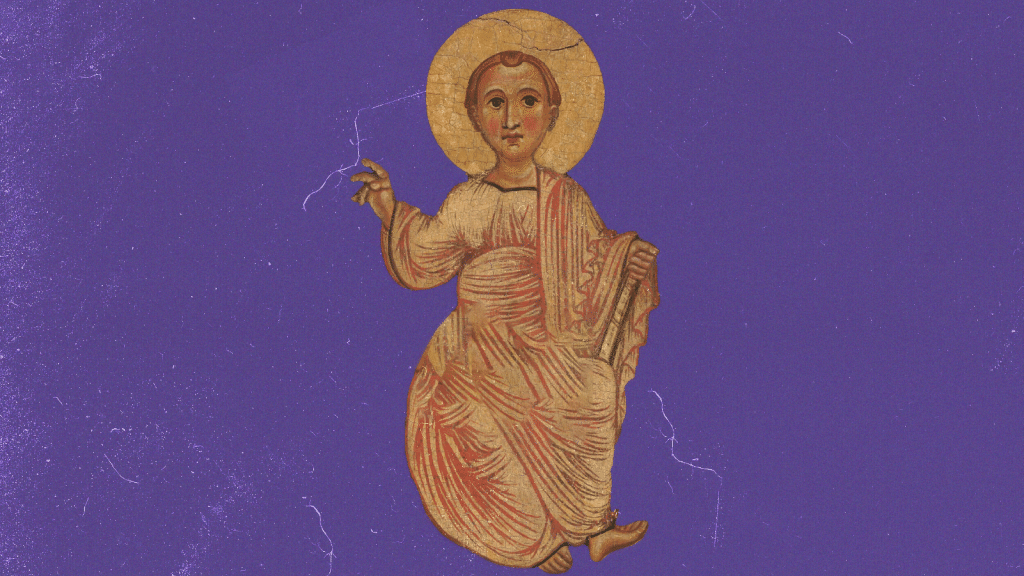As the year comes to an end, the inevitable messages of self-reflection, the year in review and hope for the future will grow louder. Whether we hear these messages in the commercials caught between football games, on the radio in the car or even directly from friends and loved ones, this time of the year comes with the annual practice of both looking back and looking ahead.
This practice may simultaneously bring about feelings of nostalgia and gratitude, but also, disappointment and grief. The close of another year may remind you of the many blessings of the past year, but also remind you of the resolutions you never quite got to. Or maybe it is a reminder of a great burden you carried for the past 365 days and a sense of hope that it might be lifted in the new year.
Yet for the joyful missionary disciple, this practice looks a bit different because it’s painted in the strokes of what we celebrate in Christ’s coming at Christmas. The Incarnation changes everything — great joys and great disappointments — because our entire experience as human beings is brought into union with Christ’s humanity made present among us.
Earlier this month, Dr. Marlon De La Torre discussed this truth of great hope with Teresa Tomeo on a monthly segment called “No Bystanders!” on Ave Maria Radio. Taking a closer look at Guidepost 3 of Unleash the Gospel, they unpacked the gift of the “Word made flesh” and how we can respond to that gift in our lives as disciples by living with hope, embracing the sacramental life of encounter and suffering with Jesus.
Living with hope
While we often look back over the ending year for highlights and moments of celebration, the reality is that at the end of every year for every person there are moments of great pain or darkness that have taken place. Dr. De La Torre and Teresa discussed how — especially in light of some recent political battles that the Church has dealt with — it can be tempting to see great darkness at the close of this year and as we step into the next one.
Yet Christ’s Incarnation celebrated at Christmas reminds us that Jesus is “the light of the human race; the light shines in the darkness, and the darkness has not overcome it” (John 1:4-5). The Word becoming flesh is a sign that God has saved the human race from the darkness of evil. That even in the most dismal of times, the Christian can live with tremendous hope, knowing full well that darkness will not win.
This isn’t a baseless, naive or ignorant hope; it is a hope rooted in the most real event of the Christian’s life: the Word has become flesh and dwells among us.
Embracing the sacramental life of encounter
One of the sweetest gifts that come with the Christmas season, is not just the celebration of the Incarnation in Christ’s first coming two centuries ago, but is also in the celebration of his presence among us here and now, especially in the sacraments. These gifts — the Holy Eucharist, reconciliation, even the Blessed Sacrament as an extension of the celebration of Mass — are the sacred meeting place between us and our Savior.
Encountering Jesus is the very basis of the life of the disciple because through these encounters, our lives change; like his first disciples, we begin to hear his voice more clearly, we become more like him, we start to live more boldly for him; “We proceed with the firm conviction that the Holy Spirit brings about life-changing encounters with the Lord Jesus” (Unleash the Gospel, Guidepost 3). The Incarnation changes us; the Incarnation changes everything.
Suffering with Jesus
Perhaps the most challenging reality for us to accept with the Incarnation, is that it transforms suffering. It’s not natural to embrace suffering or to believe that it is good. But in light of the Incarnation, disciples receive the supernatural hope to trust that all suffering can bring about good.
There is a tempting belief that once one resolves to follow Jesus, all will be well: blessings will come and trials will fade away. But this belief is inconsistent with the Incarnation. Jesus taking on humanity and dwelling among us didn’t erase the difficulties that we face in our lives; instead, it gives those difficulties meaning. He transforms our greatest perils into our great glory.
Because the Word became flesh, we can carry our crosses — not because they have become lighter, but because Jesus has turned our suffering into an occasion to be closer to him. And his defeat of death assures us that all suffering and even death can be transformed into good and even resurrection. The Incarnation changes everything.
As you enter into this Christmas season, look back on the year you’ve had, and forward to the new year that lies ahead, allow Christ’s presence to transform everything: your greatest joys and your greatest blessings. Because it does indeed do that — the Incarnation changes everything.
